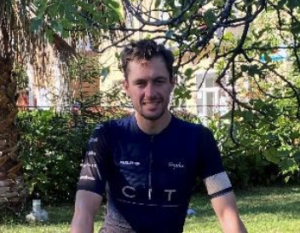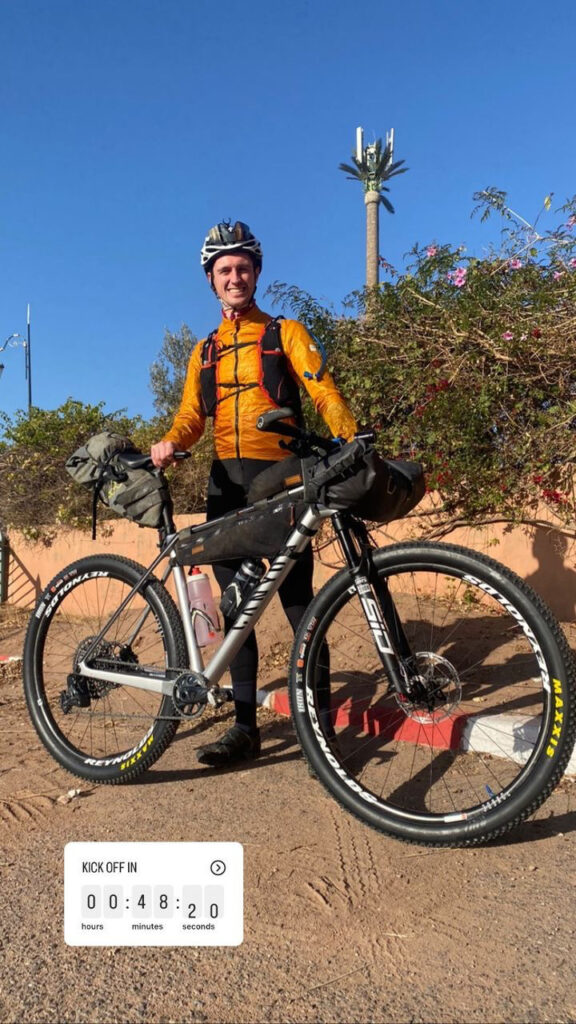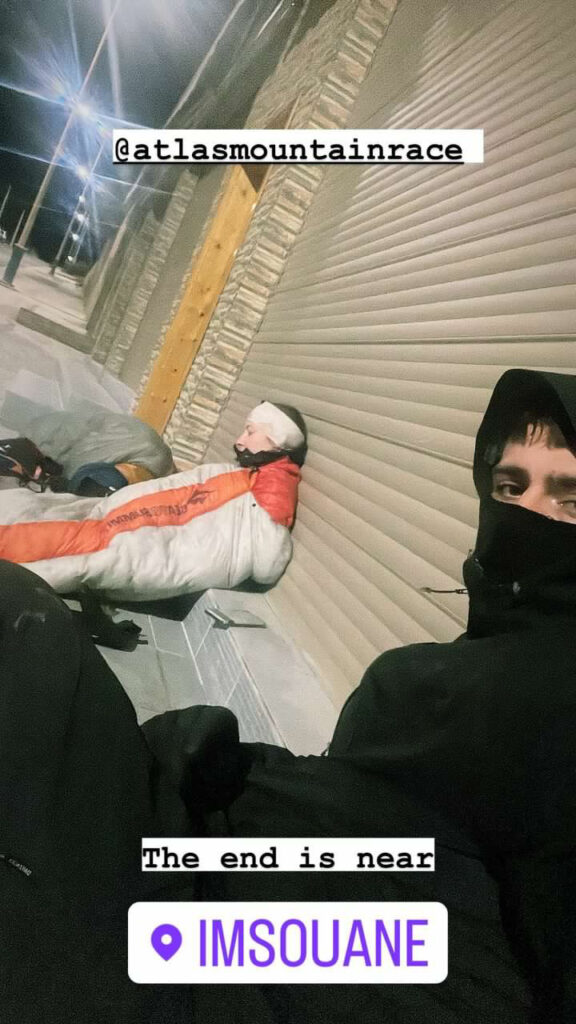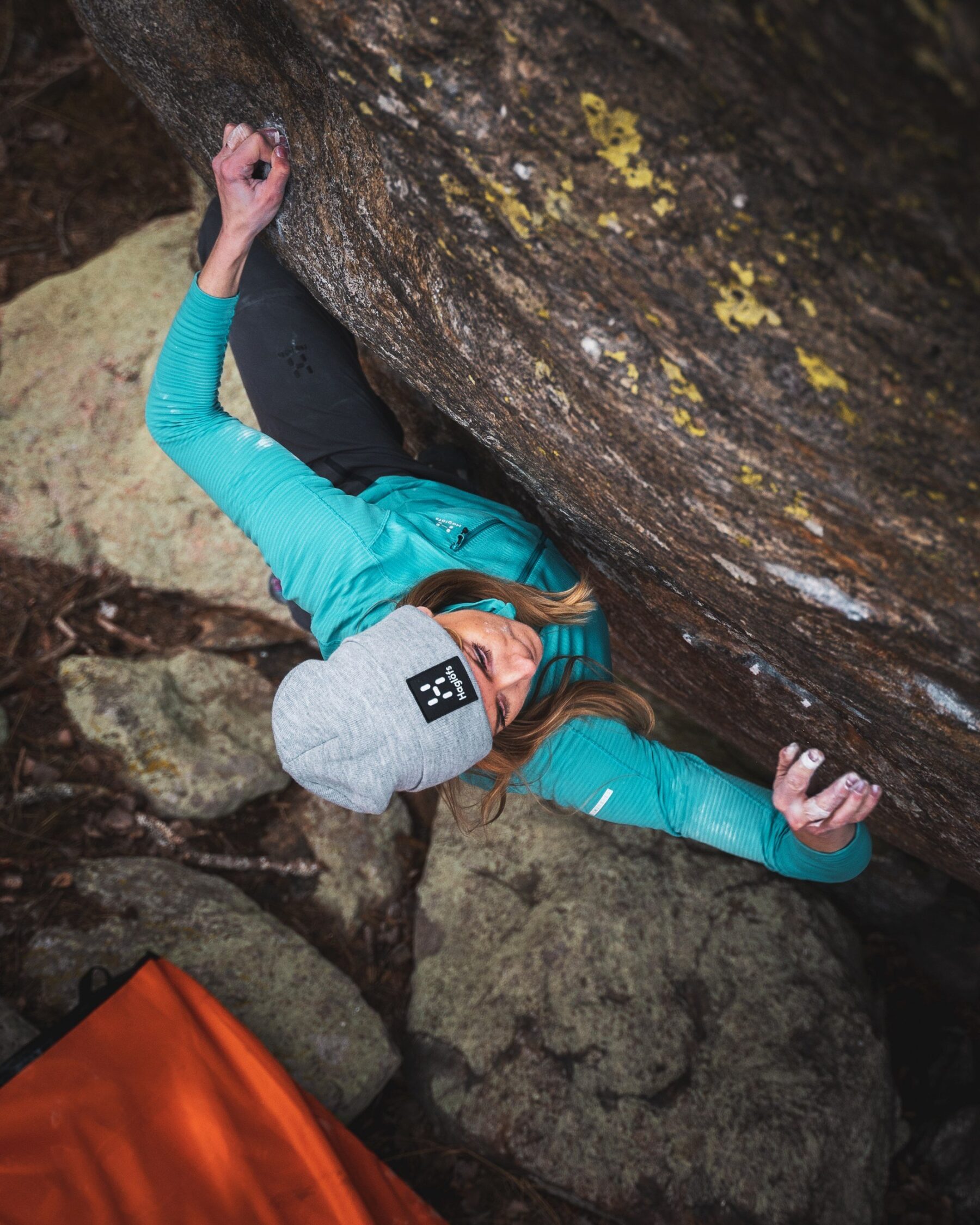Weaving nearly 1300km of gravel tracks and old colonial roads through remote villages, and at times vast swathes of very little, the Atlas Mountain Race is an unsupported, single-stage cycling event. The clock never not stops and there are prizes for neither those who complete it nor win it. In February 2023, the third edition of the AMR saw riders race from Marrakesh, across the high passes of the Moroccan Atlas and Anti-Atlas to Essaouira, tackling extreme conditions as temperates plummeted to unexpected lows.
Here, rider Charlie Bell recounts his experiences taking on the challenge as he contemplates why it is that having started as a niche sub-culture, this brutal style of adventure bike racing now attracts such a large field of racers as well as spectators.
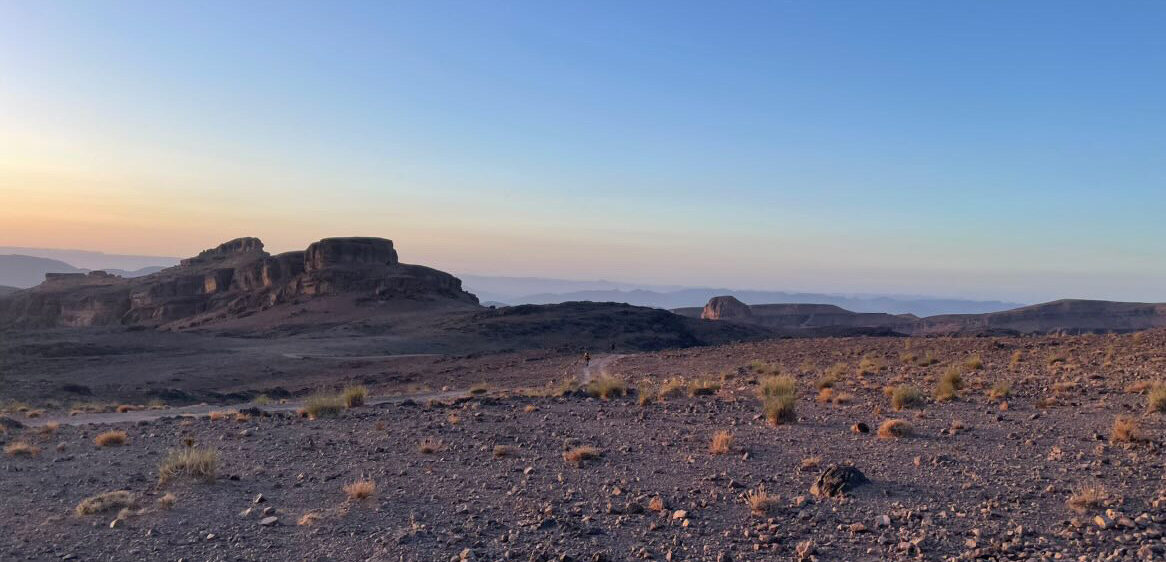
The Atlas Mountain Race (AMR) captured my interest in 2020, shortly after the inaugural edition took place. Having completed a number of endurance events in the past but never a ‘bikepacking race’, I eagerly submitted my application for the 2021 edition. Race organiser, Nelson Trees, well known in the bikepacking community, initially for the gruelling Silk Road Mountain Race through Kyrgyzstan, had gained popularity with his off-road races and it seemed the AMR was further influencing a shift from tarmac to trails.
With a sense of apprehension and excitement, my application was accepted. Time to work out how I was going to tackle 1,100KM of off-road with 20,000M of elevation. But not so fast…COVID was still far from done, and a string of email updates concluded in a postponement until 2022. Fast forward a year and the impacts of the dreaded pandemic were still lingering meaning the February 2022 edition was again delayed until October 2022 which I was unable to do. I looked elsewhere to fill the void and completed the first edition of the Transbalkan Race in June 2022 through Slovenia, Croatia, Bosnia and Herzegovina and ending in Montenegro. 1350KM with 30,000 metres of elevation, this was an absolute epic and within 24 hours of finishing, I was emailing Nelson confirming my place for the AMR Feb 2023 edition.
The fire had been lit and there was no going back.

The ultra bikepacking racing scene is gathering momentum. Having done some events in the past which define repetitive; going round a small loop for extensive periods of time, these races offer a refreshing albeit exhausting alternative. Something which not only challenges you physically and mentally, but is also provides a real adventure through incredibly remote, challenging and stunning environments, and indeed, covering lots of it. The Atlas Mountain Race is an ‘unsupported’ race meaning you can receive no outside assistance, you cannot receive help from other racers and you can only use services which are commercially available to other racers such as shops and restaurants. The Atlas Mountains are of course at times, in somewhat short supply of commercial services!
My bike of choice was a Canyon Exceed – a hardtail mountain bike with tubeless 2.2 inch tyres. I ran a SON dynamo hub paired with a Sinewave Beacon. About three months before the start an update from Nelson stated that finish line was going to be in the coastal town of Essaouira which would add on 200km+ (a total of 1350km) to the race and nudge the elevation up to more like 23,000 metres. With the majority of preparation being in UK winter, and reports from previous editions of excessively hot temperatures, my plan was to try some sauna acclimatisation a couple of weeks before the start. As the start line edged nearer though, I was seeing reports from riders already out in the mountains, battling snow and sub zero temperatures. A shift in strategy it seemed would be due. More layers required and the UK winter conditions proved to be very appropriate training.
As the sun set and the temperature plummeted, the realisation of the enormity of the task at hand began to sink in
On the 3rd February we lined up on the starting line, and at 6PM we set off into the night. I had tried to sleep during the day but with a little of my own apprehension and nervous energy in the start hotel in Marrakech, this was a challenge.
Riding out of the city for the first 30km or so was a misleading start to the race. With an impressive police escort, we rode the flat, smooth tarmac together as a 200 person peloton the only time in the race you could draft. Things quickly changed however, as the gradient sharpened making its way up to the infamous Telouet Pass, the highest point of the race at 2700 metres.
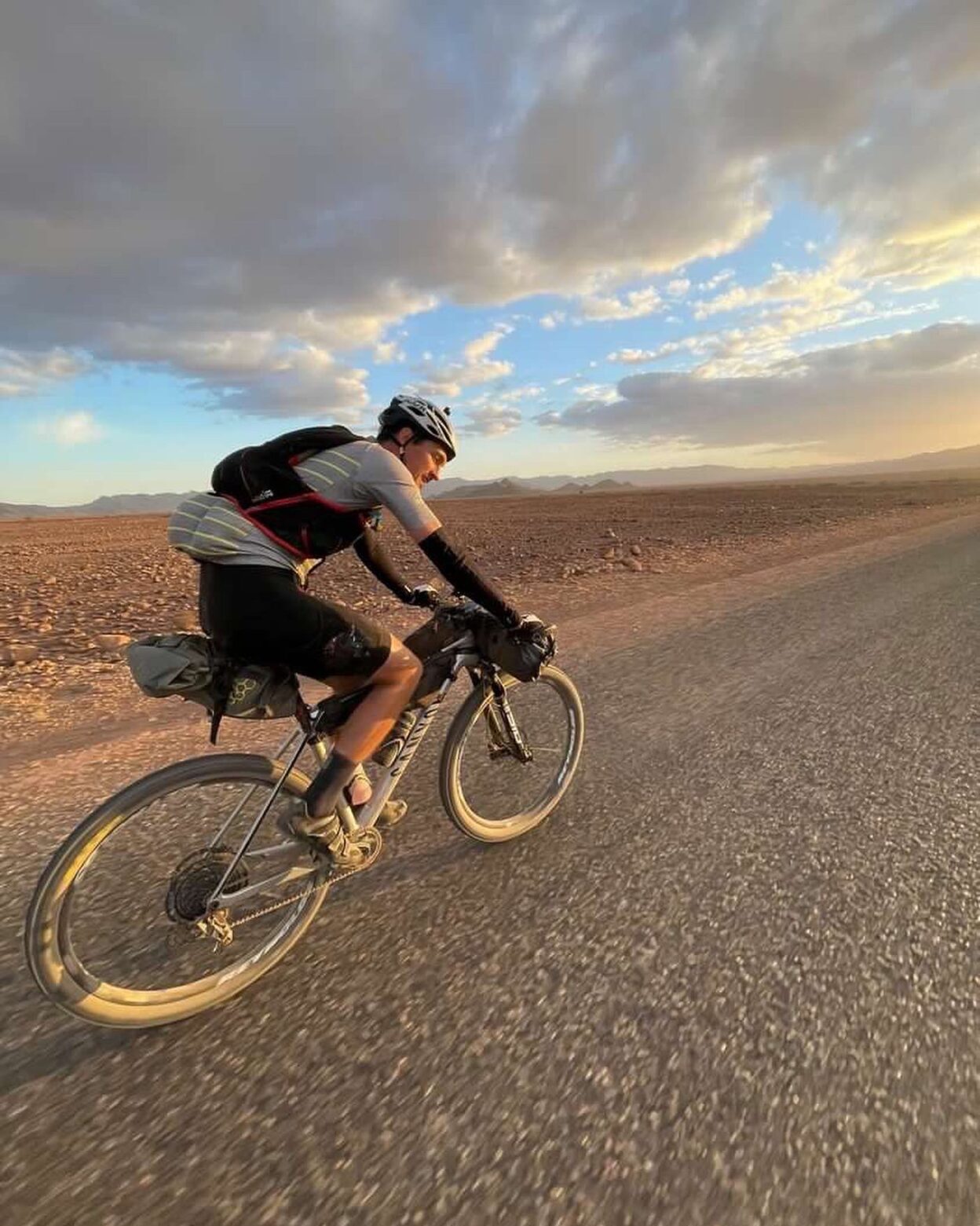

As the sun set and the temperature plummeted, the realisation of the enormity of the task at hand began to sink in and the legs were rudely awakened. With a bright moon illuminating the mountain side and the light beams of racers creeping closer and closer to the snow line, the landscape became eerie and the steepness of the surrounding snow-covered peaks, daunting.
After summiting the pass, despite downhill, rest was not on the agenda. It was an extremely rocky, steep, descent which required being back off the bike to guide it downhill for a few kilometres before eventually reaching Checkpoint 1 of 3 at the Auberge Restaurant only 126 kilometres into the race in the early hours of the morning.
Weary faces littered the mountain restaurant as riders made their way in to have their brevet card stamped, huddling round an open fire and filling the fuel tanks with tagine and omelettes. Some opted for sleep and some already possessed that ghostly, deflated look with what had already been endured in just a tenth of the distance of the race. After a short 30-minute break, I pressed on into the darkness.
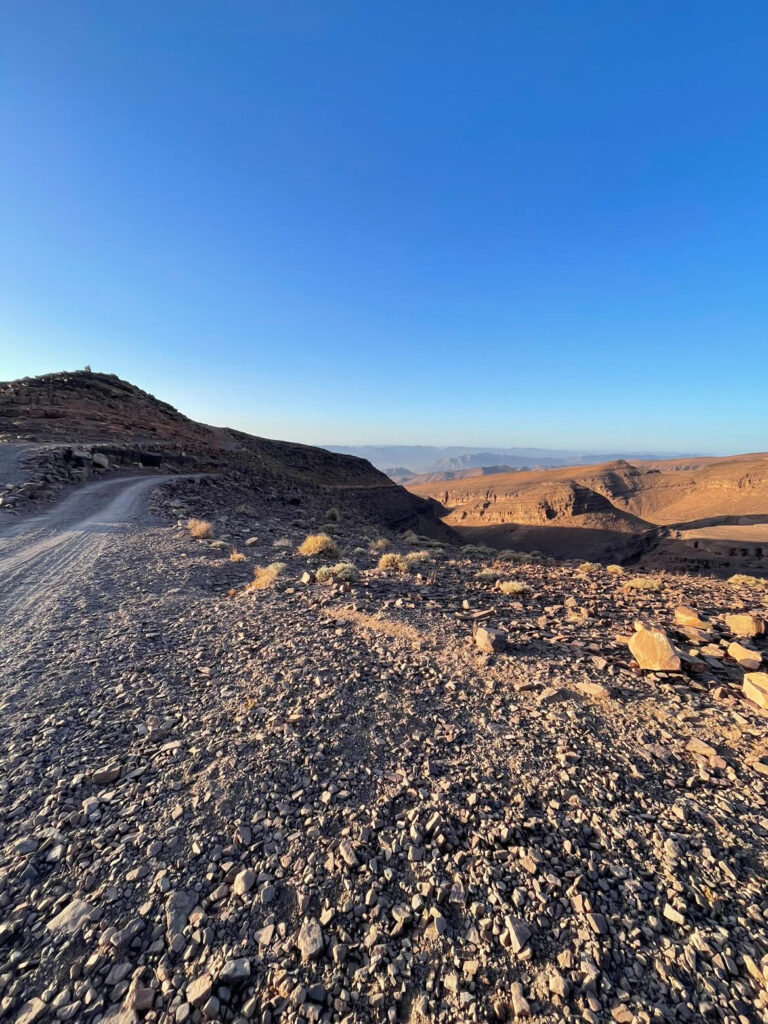
Some already possessed that ghostly, deflated look with what had already been endured in just a tenth of the distance of the race
Night time was tough during this race. Not only did the temperature drop quickly as the sun went down (reports were of temperatures as low as -12 degrees Celsius) but the darkness lasted a painstaking 13 hours. The coldest part of the night tended to be from 4am-7:30am so, instead of battling the cold in a lightweight sleeping bag, I aimed to sleep between midnight and 3am most nights (except for night one which was sleepless).
There is a mantra of ‘never scratch (quit) at night’ amongst the community and on reflecting on these races, this is sound advice. Everything always seems worse in the dark and so it is easy to catastrophise.
Having had my first sleep on night two, in my bivvy, I started moving again and the cold had clearly impacted my two battery packs but sleep deprived I catastrophised this into my battery packs have stopped working and are not going to work again. My GPS unit began to run low on battery and then at about 5am, navigating my way through a dry, sandy, rocky river bed, I fell whilst almost stationary, landing on a rock which smashed my iPhone into pieces. The internal dialogue took a caffeine hit…this race is over, how is it even possible to finish with no battery and no phone.
But one of the beauties of these races is that if you decide to quit in a remote section, you still need to get yourself to civilisation. So you may as well carry on. Having accepted what will be, will be regardless, I need to move forward. I rode near a couple of other racers for a while and chatted. The warmth of the sunrise on my face gave hope and the most incredible sunrise ensued, in conjunction with the most epic descent. My GPS was now at about 6% battery so I stopped to try the battery pack one last time having had the battery plugged into the dynamo hoping that would revive it. The stars had aligned. From this is miserable, why am I doing this and I am going to have to scratch to this is epic! in the space of 30 minutes, the ups and downs of this race are extreme.
When writing, it is very easy to focus on the adversities and challenges of the race. Pushing your bike through sand for 15km, made a little more endurable by the flock of goats up a tree – which when sleep deprived, was a challenge to work out whether this was reality – pushing up steep, rocky never-ending passes, water bottles freezing at night, sleep deprivation to the point of hallucination, sickness, mechanical issues, running out of food and water, the list goes on…So why are people taking to this kind of racing? For most people who are leading pretty busy, normal lives, the physical and mental demands of these events boil to down to a very simple existence. One’s focus simply becomes, to keep moving forward and to enable that, one needs to eat and drink enough and sleep just about enough. Nothing else matters, it becomes almost primitive.
For a week, work emails don’t matter, replying to WhatsApp doesn’t matter, emptying the washing machine doesn’t matter, paying bills doesn’t matter. There is one process to achieve one outcome; keep moving forward and get to the finish. The nature of this simplicity means the highs are simple too; the warmth as the sun emerges from a long night filling you with energy making you smile, laugh or even sing out loud (partly to stay awake); the view which you savour at the top of a five hour climb, the moonlight so bright that you can turn off your light. Or stumbling across a van selling quality coffee in the middle of nowhere, getting into a warm sleeping bag even just for two hours on a rocky ground, even just getting a bout of enthusiasm and excitement that you are making good progress towards the simple goal of crossing the finish line. And whilst there are times where you wish you could pause for a little longer to enjoy the view, it’s actually this slight blur of covering so much incredible ground on very little sleep that makes it slightly magical and you need to try to savour even the really, really hard moments, because those too are finite
I closed in on Imsouane, a real landmark as it is the first time you hit the coast and only 90km of coastline until the finish line at Essaouira. It was 5am and I had a brief sleep outside a shop before making the final dash for the finish as the sun rose. The finish line is not a street, lined with crowds of supporters, it is a far more modest affair; those who have finished before you and are not catching up on sleep, a few of the race organisers and that’s it. But then is the time to begin piecing together memories of the last few days, share stories with others who have experienced the same and of course to try and catch up on sleep.
With only a just over 50% finish rate, the Atlas Mountain Race is not for the faint hearted and one should arrive as fully prepared as one can and with some good experience under your belt. But it is worth every pedal stroke, every bit of adversity and is an incredible journey and one I shall never forget.
Don’t miss a single adventure
Sign up to our free newsletter and get a weekly BASE hit to your inbox
You might also like
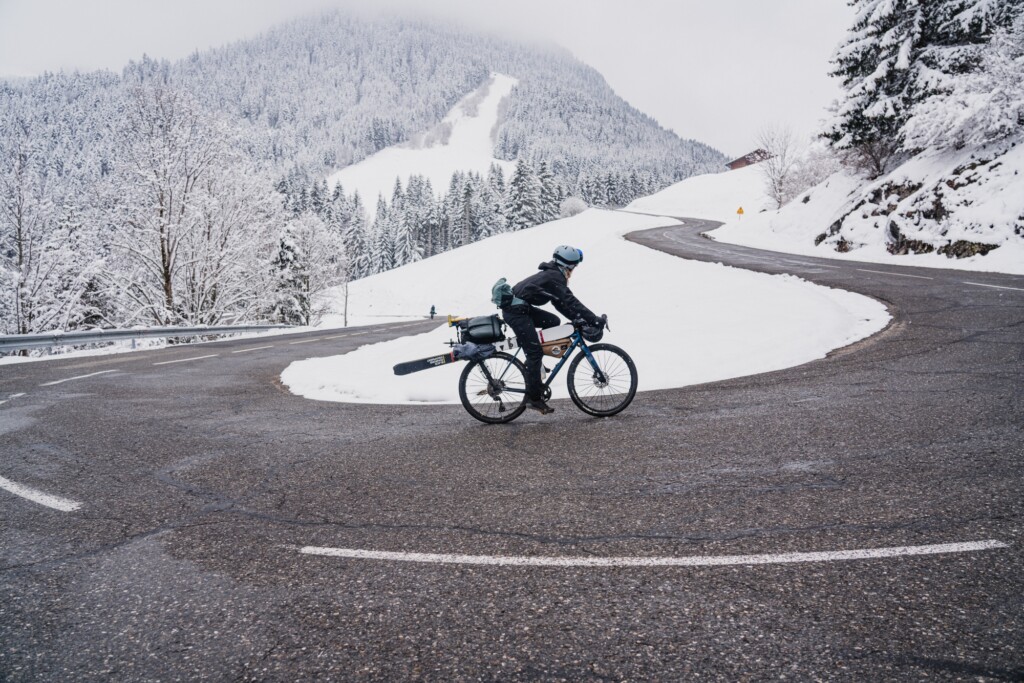
Story • Gaby Thompson • Jun 26, 2023
Bike. SKi. Fondue. Repeat
A backyard adventure with close friends in the French Alps
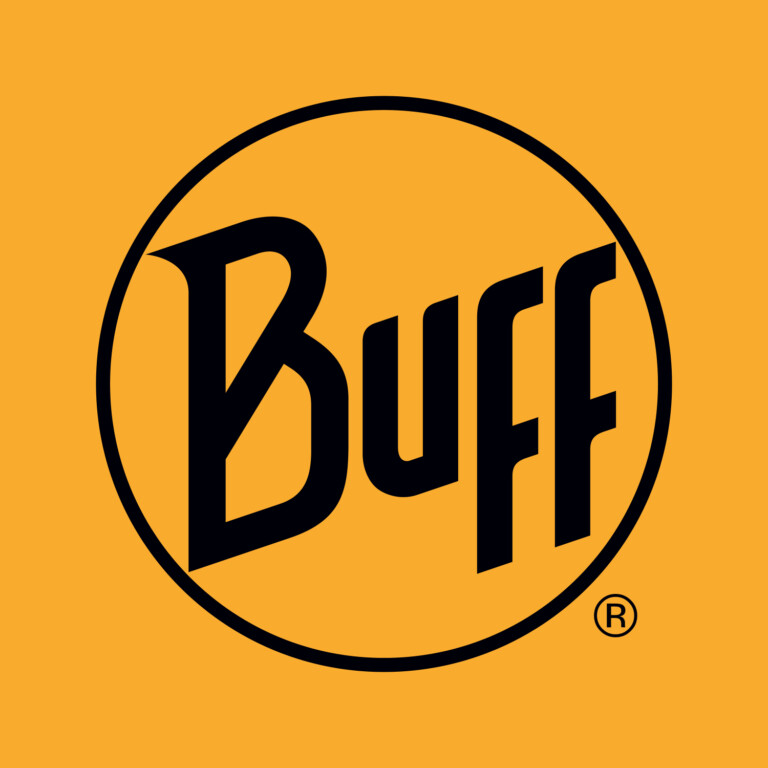
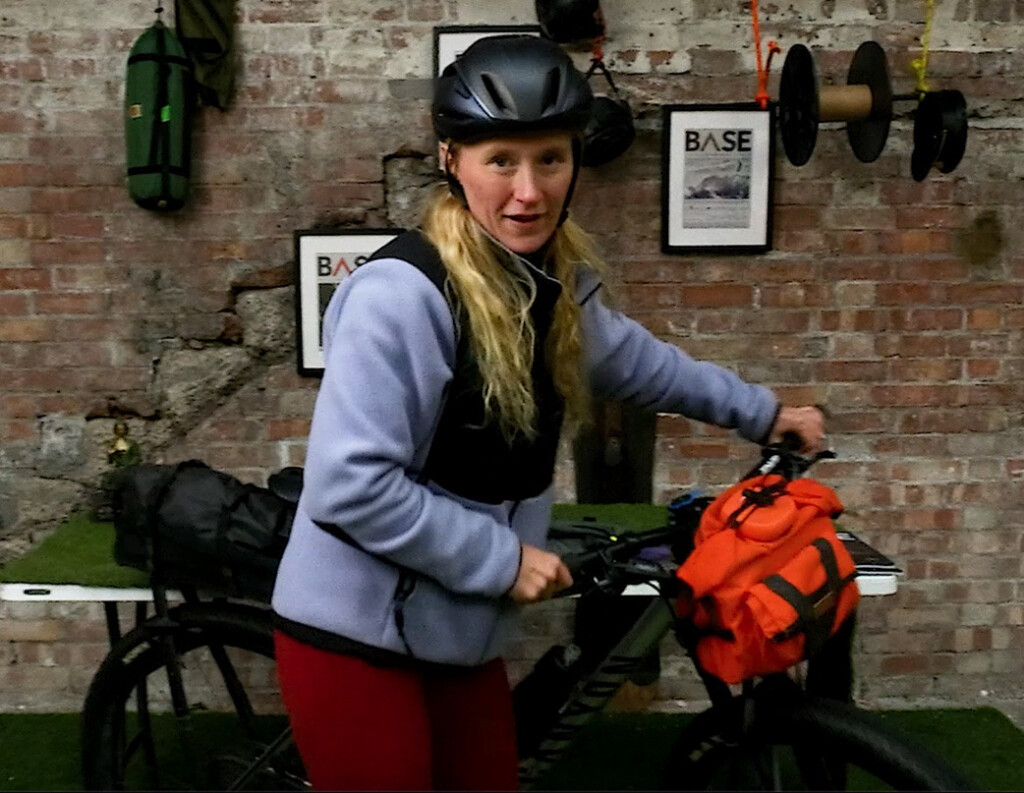
Video • BASE editorial team • May 26, 2023
Top Five Bikepacking Essentials Every Rider Needs To Know About
Don't leave home without these must-have bits of bikepacking kit
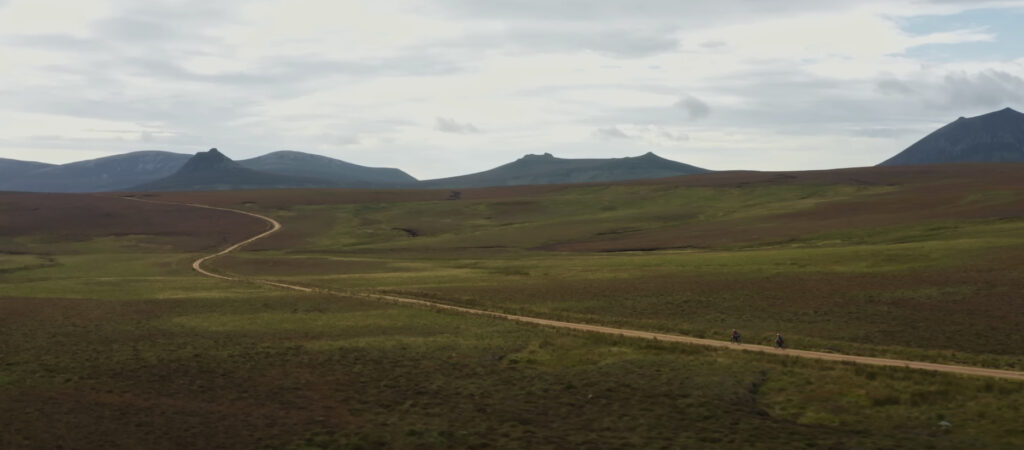
Video • BASE editorial team • Mar 27, 2023
Introducing Scotland’s Newest Bikepacking Route: The Pictish Trail
Connecting the rugged north coast to Scotland's capital city
